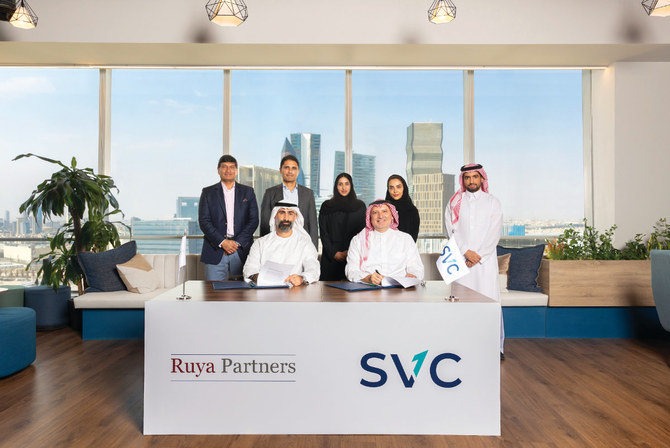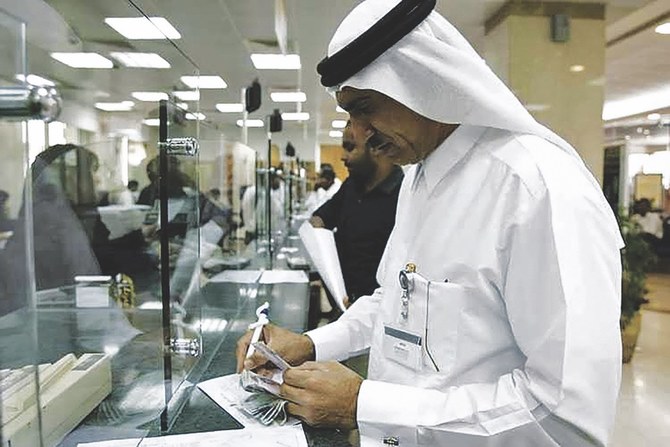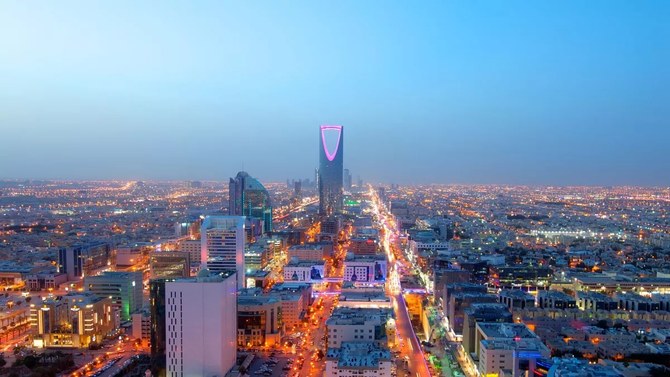RIYADH: Startups in the Middle East and North Africa region are consistently securing investment deals, signaling a burgeoning momentum in the region’s startup and venture capital arena.
Among the recent funding agreement, Saudi proptech firm Ejari benefited from a $1 million pre-seed funding round by Sanabil 500 MENA and Hambro Perks’ Oryx Fund, which also saw participation from various angel investors.
Launched in 2022 by Yazeed Al-Shamsi, Fahad Al-Bedah, Mohammed Al-Khelewy, and Khalid Al-Munif, Ejari offers a rent now, pay later service tailored for the residential sector in Saudi Arabia.
“Our vision is to democratize access to the real estate market with our solution, empowering and enabling tenants to change their rental bill from a large yearly expense into a manageable monthly one,” Al-Shamsi said.
The service caters to a growing demand for more versatile payment alternatives within the country’s rental market. The newly acquired funds are set to bolster Ejari’s RNPL offerings and facilitate its foray into a broader range of proptech services.
Saudi Venture Capital invests $10m in Ruya Private Capital I LP
Saudi Venture Capital has invested $10 million in Ruya Private Capital I LP, a private credit fund managed by Ruya Partners.
Established in 2020 by Omar Al-Yawer, Mirza Beg, and Rashid Siddiqi, Ruya Partners is a dedicated private credit institution aimed at offering financing solutions to private enterprises in emerging markets.
With the fresh infusion of funds, the firm intends to channel capital into private debt instruments, primarily targeting small and medium-sized enterprises.
“We are honored to have received this commitment of capital and trust from SVC and look forward to a successful partnership together,” stated Al-Yawer.
The fund will concentrate its efforts on mid-market entities, encompassing late-stage venture capital-backed companies, both within Saudi Arabia and the wider region.
UAE’s proptech Nomad Homes secures $20m in a series A round
UAE’s proptech firm Nomad Homes has secured $20 million in a series A extension round spearheaded by Acrew Capital.
Established in 2019 by Damien Drap, Dan Piehler, and Helen Chen, Nomad Homes operates as a software-augmented marketplace catering to the residential real estate sector in Europe and the Middle East.

Founded in 2019, Nomad Homes operates as a software-augmented marketplace catering to the residential real estate sector in Europe and the Middle East. (Supplied)
The new funding will bolster the company’s growth trajectory, enhancing its artificial intelligence-driven co-pilot feature for prospective buyers.
Additionally, the capital will also support the launch of their exclusive offering, Nomad Homes Private Client.
“Buyers deserve expert representation just like sellers do; having one agent represent both buyers and sellers is just not fair,” says Chen, Nomad Homes CEO.
Nomad Homes Private Client is a service for clients purchasing a single property or a portfolio of assets worth over 10 million dirhams ($2.7 million).
Emirati proptech Keyper raises $6.5m in a seed round
Another Emirati proptech startup, Keyper, has successfully raised $6.5 million in a seed funding round spearheaded by Access Bridge Ventures and Vivium Holdings, which also saw contributions from venture capital firm MEVP, Jabbar Internet Group, several real estate stalwarts, and a consortium of angel investors.
Conceived by Omar Abu Innab and Walid Shihabi in 2022, Keyper presents a property management platform enabling tenants to oversee expenses and make online payments, while investors gain curated real estate portfolios bolstered by data-infused insights.
“This seed funding significantly accelerates our growth trajectory, empowering us to deliver a seamless, transparent, and data-driven real estate experience for all stakeholders,” Abu Innab said.
Since its inception, Keyper has amassed 2,100 freehold residential units in Dubai, with valuation surpassing 4.5 billion dirhams and onboarding 800 landlords, the company claimed.
In May, Keyper unveiled its rent now, pay later service, aimed at financially supporting Dubai’s populace. The new capital influx is anticipated to turbocharge Keyper’s endeavors in rent facilitation and property management advancement.
Egypt’s eCommerce Boost launches ‘Expand to Saudi Arabia’ master class series
One of the largest e-commerce communities in the MENA region, eCommerce Boost, has announced the launch of a series of master classes aimed to support companies to expand to the Saudi market.
Founded by digital strategist Sherif Makhlouf, the firm aims to support the fast-growing online retailing ecosystem with actionable strategies and practical knowledge.

Sherif Makhlouf, founder of eCommerce Boost. (Supplied)
The series of masterclasses will aim to provide MENA ecommerce businesses with an understanding of the Saudi consumer and competitive landscape as well as marketing strategies and tech solutions specific to the Saudi market.
“The Saudi market is an extremely attractive market but difficult to crack if you don’t approach it correctly, and that is why we have launched the Saudi expansion Masterclass series to bridge this knowledge gap and bring more MENA e-commerce founders into the Saudi market,” Makhlouf said.
The first master class is scheduled to take place on Oct. 31, with more sessions set to be unveiled.
EV startup Neo Mobility raises $10m in a seed funding round
Neo Mobility, an electric vehicle last-mile startup based in the UAE, has successfully secured $10 million in a seed funding round from Delta Corp Holdings, Pyse Sustainability Fund, and a group of angel investors.
Launched in 2020 by innovators Abhishek Shah and Anish Garg, Neo Mobility is dedicated to providing eco-friendly last-mile logistics services through its all-electric fleet.
With this fresh influx of capital, the startup is gearing up to expand its EV fleet to 5,000 two-wheeler and four-wheeler vehicles by 2025.
UAE’s Democrance secures an undisclosed round from Wa’ed Ventures
The UAE-based insurance technology company Democrance has secured funding from Wa’ed, Saudi Aramco’s venture capital division, to fast-track its foray into the Saudi market.
Founded in 2015 by Alberto Pérez, Damian Dimmich, and Michele Grosso, Democrance offers insurers a white-label Software-as-a-Service solution to bolster their digital services, streamlining sales and distribution.
Already operating in 15 countries across the Middle East, Africa, South-East Asia, and Latin America, the firm previously garnered support from Global Ventures in 2021 for expansion endeavors.
UAE’s Belong raises $1.5m in a pre-series A
UAE’s Belong, a city-centric social app previously known as ASKWHO, has secured $1.5 million in its pre-series A financing round, taking its cumulative fundraising to $3.5 million.
Established in 2019 by Michael Askew and Matthew Gaziano, the platform fosters connections among urban inhabitants.
With the fresh capital, Belong aims to enhance its services and broaden its reach in cities such as Dubai, San Francisco, and New York.


















